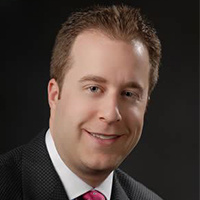Emmett Collection Lawyer, Michigan
Sponsored Law Firm
-
 x
x

Click For More Info:
-
Marrs & Terry, PLLC
6553 Jackson Road Ann Arbor, MI 48103» view mapBankruptcy & Debt Personalized, Efficient Counsel
Marrs & Terry, PLLC have been helping individuals face a variety of legal challenges, including bankruptcy, estate planning and administration, and family law.
800-862-7221
Aaron J. Scheinfield
✓ VERIFIEDBankruptcy & Debt, Landlord-Tenant, Collection, Litigation, Construction
Aaron J. Scheinfield, born Farmington Hills, Michigan, December 1977, was admitted to the Bar in 2004. Education: University of Michigan (B.A. 2000); ... (more)
Derek J. Brackon
Business Organization, Family Law, Collection, Wills & Probate
Status: In Good Standing
FREE CONSULTATION
CONTACTThomas James Stanis
Construction, Family Law, Contract, Collection
Status: In Good Standing Licensed: 11 Years
Caralyce M. Lassner
Landlord-Tenant, Federal Appellate Practice, Family Law, Collection, Bankruptcy & Debt
Status: In Good Standing Licensed: 23 Years
Tricia N. Mckinnon
Litigation, Collection, Bankruptcy, Bankruptcy & Debt
Status: In Good Standing Licensed: 25 Years
Terri P. Gruca
Contract, Collection, Bankruptcy, Bankruptcy & Debt
Status: In Good Standing Licensed: 26 Years


 Tricia Terry Ann Arbor, MI
Tricia Terry Ann Arbor, MI AboutExperienced Michigan Lawyer
AboutExperienced Michigan Lawyer Articles
Articles

